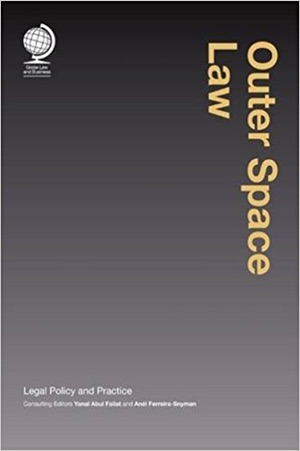Review: Outer Space Lawby Michael Listner
|
| Law and policy are co-joined, but policy tends to be the unappreciated doppelganger. |
Outer Space Law is a well-read work aimed at both academia and practitioners. It is a work that compiles essays discussing not only the fundamentals of international space law but also discusses the domestic end. In doing so, Outer Space Law does not provide the reader the minutia of space law but rather the rudiments to give the reader a foundation for further study. Indeed, no source is one-stop-shopping in any legal field and Outer Space Law is no exception.
The aspect of the book that its title does not reflect are the essays dealing with the myriad of policy issues facing the development and use of outer space. Law and policy are co-joined, but policy tends to be the unappreciated doppelganger. Certainly, policy’s second-string mention in the title of this book would suggest such is the case here, but the inclusion of policy matters amongst its legal content belies its secondary mention in the title and more than makes up for the wants from the title.
While Outer Space Law is substantively about the law and policy of outer space, the real treasure is its contributors. The book is penned not by a single author but represents the contribution of numerous essayists who represent the budding generation of legal and policy minds who are influencing, and will continue to influence, the legal environment and canon of outer space. Indeed, it is the introduction of this new crop of legal and policy professionals that is the real cake of Outer Space Law and their insight within the icing.
Of course, the piper has to be paid, and such is true for Outer Space Law. The volume’s price is not unsubstantial, but also not unreasonable. Certainly, the practicality of purchasing this book is subjective to the reader, but the value it will provide to the reader will make the cost an investment for a work that will become a worthy addition to a comprehensive legal and policy library.
